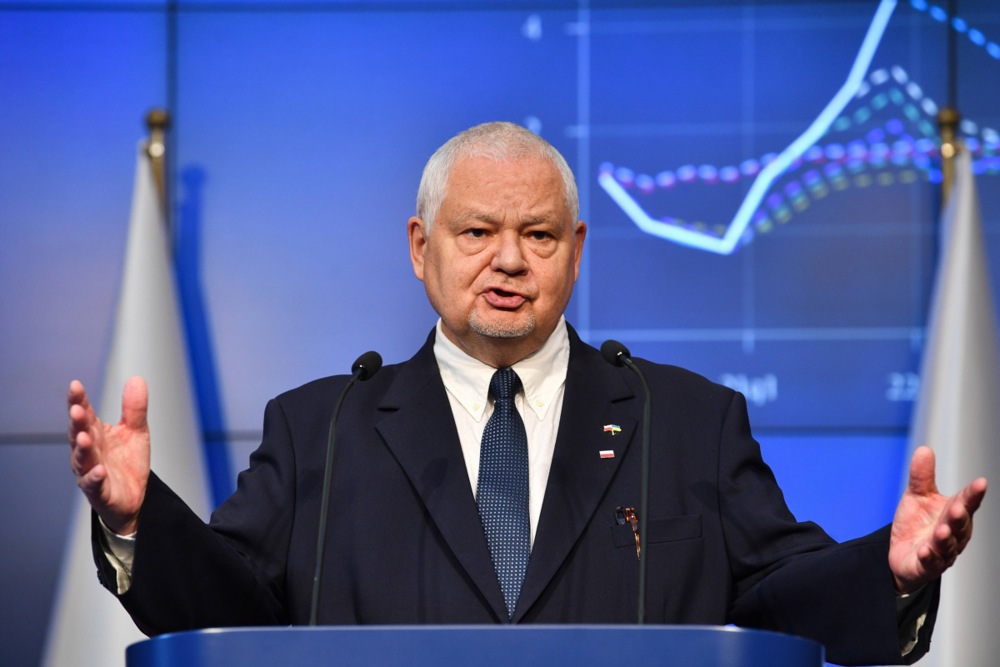The deputy head of Poland’s central bank (NBP), Marta Kightley, in an interview with TV Republika, has revealed that the NBP is getting signals from foreign investors regarding their concern about the conflict between the Tusk government and the central bank. She warned that the longer this is allowed to continue, the higher the risk that the rate at which Poland borrows money will increase, making the repayments on its interest a greater burden on the state budget.
She has also noted that NBP President Adam Glapiński has been criticized for buying up assets linked to the fund that was set up to protect Poland’s economy from the effects of the Covid pandemic, whereas it is precisely such actions that helped the Polish economy avoid recession.
The parties that make up the present Tusk-led coalition have been accusing Glapiński for failing to combat inflation too. This charge looks to have become outdated following the figures from Poland’s Office for Central Statistics (GUS) showing inflation to be at 3.9 percent. They have also accused the head of NBP of endangering the stability of Poland’s currency, the zloty, through interventions on the currency markets, resulting in devaluation, and for assisting the state budget via the purchase of treasury bonds.
The Polish constitution allows for the head of the NBP to be tried by the Tribunal of State, but only if he has acted in violation of the constitution or has been proven to have broken the law during his term of office. Moreover, he can only be held accountable for the decisions he takes at an individual level. Decisions on setting the interest rate are taken by the Monetary Policy Council and on monetary policy by the whole board of the central bank.
Opposition politicians have unleashed an avalanche of attacks on the head of the NBP without even checking if formally they could put him before the Tribunal of State. They also seem blissfully ignorant of the fact that they cannot possibly suspend him from his office, as such action is not envisaged in either the constitution or legislation on the management of the NBP.
The head of the European Central Bank (ECB) Christine Lagarde has already made her position clear in a letter to Glapiński in which she declared that any attempt to stop Glapiński from performing his duties as president of the NBP will be seen as a threat to the independence of the central bank and could lead to the ECB taking the matter to the European Court of Justice.
Attacks on central banks are still rare in democratic countries, as they tend to undermine the international reputation of the given state and can lead to turbulence, such as currency speculation and increasing the price of borrowing. The NBP is a part of the system of Europe’s central banks and is therefore under the protection of the European courts, which recently blocked the dismissal of the head of Latvia’s central bank.





